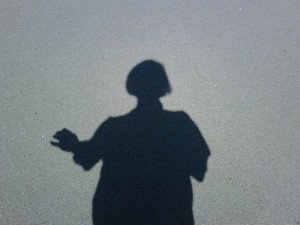 Deeper Into the Shadows
Deeper Into the Shadows
Last post I wrote about some of the complexity of racism and white privilege as seen in American pop culture. If you follow the link to the description of the Rat Pack you will find another element in that complexity: gender.
You see the main members of the Rat Pack were very famous and attractive Hollywood stars. But they weren’t all men. In fact over the years a number of women were also associated with the Pack. In the 1950s it was “den mother,” Lauren Bacall, who was married to the original ring leader, Humphrey Bogart. In the 1960s other women were sometimes considered “mascots” of the group including Marilyn Monroe, Angie Dickinson and Shirley McClaine.
Wait. Notice that? Den mother and mascots. Not members. Not rats. Not really part of the pack. It was a club that belonged to the boys. Take a look at this video clip of Rat Pack member Dean Martin and mascot Shirley McClaine singing “Ain’t We Got Fun” and trading barbs.
Now, notice a few similarities with Sinatra and Davis’s “Me and My Shadow.” The shadowing this time brings bodies much closer and includes more physical contact. Only this time, there is no trading roles back and forth. Despite McClaine’s lead in the dancing and the singing, by being out front she’s not the “me” with Martin as the “shadow.” Rather she seems to be under his power, even while she rolls her eyes in exasperation. Sexual attraction and repulsion are both present throughout the performance as read on the faces. Unlike Sinatra and Davis, these two don’t work out the differences. They end split with Martin left on the stage alone and McClaine out of sight. The run of jokes are all stereotyping jabs at women or men.
Maybe you’re asking, “What does this have to do with racism?” or more basically, “Who cares?”
It turns out that racism is not just a matter of some constructed or imagined differences between people based on their ethnicity, skin tone or national heritage. Each of those are mostly artificial categories anyway (rather than natural ones, as they are portrayed). Sure, genealogies of kinship exist and ethnic heritage is a powerful defining force for a person. Appeals to both biology and the Bible tend to help people think of such differences between people as “natural.” Yet, the differences and similarities between and among people is immensely complex and can’t be reduced to biology, history, national origin or any other single factor.
The first and most persistent difference most of us face is the one related to our gender. And although differences can’t be reduced into dichotomies, still we try. The resulting stereotypes, antagonism and enduring inequality of power based on differences of gender create deep shadows in our souls. And they have a way of shaping every other negotiation of difference we try to make, including the shape that privilege and racism take.
Complicated? Yes. Worth trying to sort out and understand? Absolutely. We can’t understand ourselves or our neighbors, without some greater understanding of the interlocking formations of gender, race and power. We can’t undo the inequities until we see them, name them, and try something new.
God have mercy on us all.



